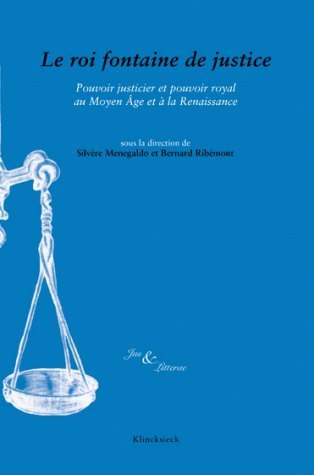In April 1454, King Charles VII ordered that French customs be officially drafted under his royal authority, which established him as the "Fountain of Justice" King. In claiming to be a good lawmaker and reorganizer of the kingdom's laws, Charles VII joined a long, and at least symbolic, tradition of kings who were guarantors of justice and of law from a moral, as well as a judicial, point of view. History – whether profane or biblical, imaginary or real – offers abundant examples of such kings. Saint Louis was not the (Epinal!) image of a sovereign dispensing justice before his people – he was also a legislator who enacted numerous ordinances and commissioned works of an eminently judicial nature.
Yet it was undoubtedly with Philip IV of France ("The Fair") and the rise of jurists that France reached a turning point, when it became acutely aware that the king was the dispenser of justice, the organizer of law. From Charles V to Henry IV, justice thus became one of the key royal prerogatives, a phenomenon that favoured the progressive standardisation of judicial practices and of the law, and the ever-stronger assertion of royal power.
It is therefore the figure of the king as “fountain of justice” and, more broadly, the relationship between justice and royal power, which are examined here from historic as well as judicial and literary perspectives, based upon documentary sources, theoretical and political texts, and literature of the Middle Ages and the Renaissance.
As a Professor of Medieval Literature at Université d'Orléans, Silvère Menegaldo is particularly interested in medieval author figures (Le Jongleur dans la littérature narrative des XIIe et XIIIe siècles, Champion, 2005) and in how Latin Antiquity texts were interpreted in the Middle Ages. He has published several articles on the latter subject and has co-translated Waltharius, to be published by ELLUG.
Bernard Ribémont, a professor of Medieval Literature at Université d'Orléans, has written several books and articles on medieval encyclopaedism, on Christine de Pizan, and on the perception of the Middle Ages through the centuries. He is the Publication Director of the Cahiers de recherches médiévales.




